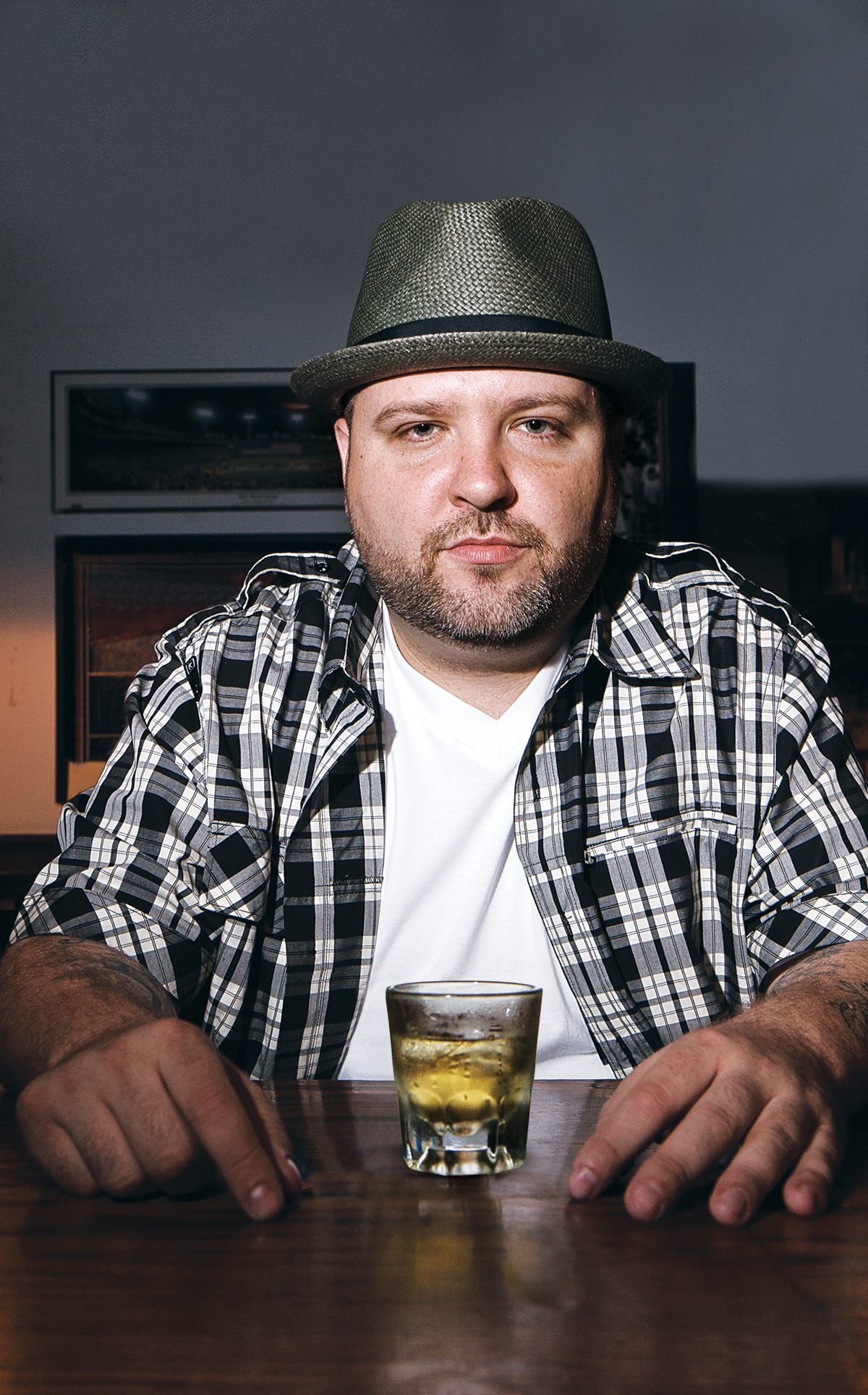Person of Interest: Slaine

Photo by Simon Simard
Clad in a “Love Machine” T-shirt and sporting a black eye (bar fight), Slaine leans on the J.J. Foley’s counter. He orders an IPA and a shot of Jameson. “It’s been a rough week,” he says.
Appearances notwithstanding, that’s hard to believe. The 33-year-old rapper’s debut solo album, A World With No Skies, comes out August 16, marking the pinnacle of a 15-year music career. He’s been featured in two Ben Affleck–directed, Boston-set movies — as getaway driver Gloansy in last year’s The Town and as gun runner Bubba Rogowski in 2007’s Gone Baby Gone — and is set to appear alongside Brad Pitt and Ray Liotta in next year’s mob flick Cogan’s Trade. He’s got a home here and one in L.A., and a son he’s nuts about. But that shiner, and lyrics chronicling lifelong battles with personal demons and depression — the latest setbacks being a divorce and legal snafus that delayed his album’s release for nearly a year — serve as nasty reminders of a difficult past that five years ago looked very much like his future.
When Slaine — born George Carroll Jr. — got the offer to audition for Gone Baby Gone, he was living in a Roxbury warehouse with no electricity or hot water. He’d struggled with cocaine abuse in the past (these days he sticks to booze), and earned a reputation as a hard partier while rising steadily in the indie hip-hop scene. In March 2006, when Gone Baby Gone’s producers were searching for a tough white guy to fill a small role, they discovered Slaine’s face scowling up from the pages of a Herald feature on his music career. At 9 a.m., Affleck started calling the rapper, who had gone to sleep two hours earlier. “I passed out,” Slaine recalls, “and when I woke up I had 66 missed calls.”
Despite having no previous acting experience — and getting drunk before the audition — Slaine landed the part. Other successes soon followed, with Affleck giving him the double boost of including a few of his tracks in both Gone Baby Gone and The Town. Today, he’s Hollywood’s Southie standby. “My life has changed vastly in the past five years,” he says. “There’s a lot of pain attached to my music, but having a creative outlet saved me.”